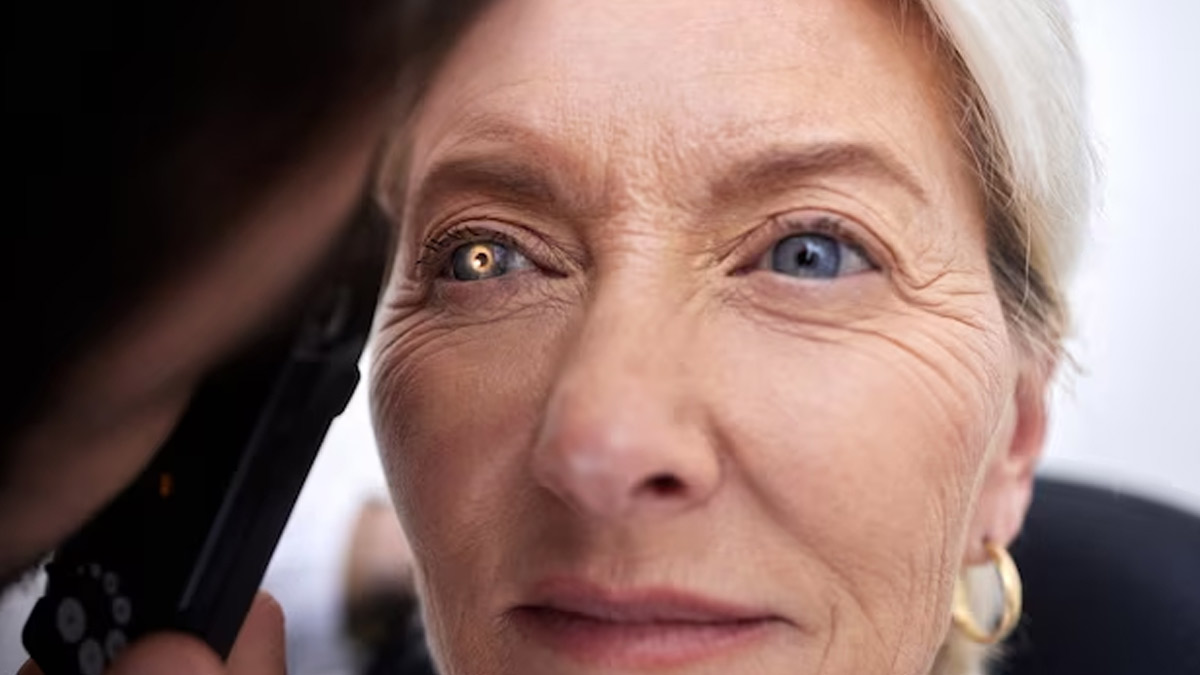
The silent thief of sight, glaucoma, can lead to irreversible vision loss if left untreated. It is an eye condition that destroys the optic nerve, which connects the brain to the eye, gradually but steadily. The vision field then steadily decreases and could lead to total blindness in the future. Anyone can develop glaucoma, and as people age, their risk increases. Dr Ajay Sharma, Chief Medical Director, EyeQ, explained early-stage glaucoma and the treatment options to prevent vision loss.
Table of Content:-
What Is Early Stage Glaucoma

Dr Sharma said that in the early stages of glaucoma, there may be no warning signs or symptoms of ocular issues. Some people may or may not experience general symptoms like headaches, watery eyes, or seeing a coloured aura.
He advised everyone over 40 to get an annual glaucoma screening, regardless of any eye problems. Depending on the kind and stage of the problem, glaucoma treatment options may include eye drops, laser therapy, eye surgery, or a combination of these. Because the illness is chronic, lifelong monitoring and follow-up are necessary. The main goal of all glaucoma treatments is to prevent more damage to the optic nerve; they cannot reverse already done damage.
Also Read: Glaucoma And Blindness: Expert Debunks 5 Myths About Glaucoma
Measures To Prevent Irreversible Vision Loss
Self-care techniques can assist you in detecting glaucoma early, which is crucial for halting vision loss or delaying the disease's progression. Here are some measures shared by Dr Sharma that you should follow:

Get A Regular And Thorough Eye Exam
Dr Sharma said that regular and thorough eye exams can help detect glaucoma early on before major damage occurs. It is recommended to get a comprehensive eye exam every 5-10 years if you're under 40; every 2-4 years if you're between 40-54; every 1-3 years if you're between 55- 64, and every 1-2 years if you're over 65. If you are at risk for developing glaucoma, you will need to be screened more frequently.
Recognise Your Family's History Of Eye Problems
Dr Sharma said that glaucoma typically runs in families. Your risk may necessitate more frequent screening if it is higher. If a family member has been diagnosed with glaucoma, the remaining members should also get eye exams to rule out any early disease.
Consistently Use The Eyedrops As Directed
Dr Sharma highlighted that glaucoma eye drops significantly reduce the possibility that increased eye pressure can progress. You must use the eyedrops your doctor prescribed every day for them to work, even if you are symptom-free. To track the progression of the condition, a serious commitment to the follow-up programme is necessary. To prevent affecting the efficacy of your treatment, always let your eye doctor know if you take any other systemic medications so they can adjust the timing and dosage.”
Also Read: Warning Signs Of Glaucoma In Children & Ways To Prevent It, Expert Weighs In

Steer Clear Of Using Non-Prescription Eye Drops
Without first consulting an eye doctor, avoid using over-the-counter eye drops for an extended period. Some eye drops (steroids) may cause eye pressure to increase if used for a lengthy period without proper monitoring. Before using any eye drugs, consult with an eye doctor first and only take them as prescribed.
Constantly Wear Eye Protection
Eye injury can also cause glaucoma. Therefore, wear eye protection when using power tools or playing high-speed racquet sports in confined spaces.
Disclaimer
This article contains information verified by an expert, however, we recommend you consult with your expert for diagnosis based on your medical history.
Also watch this video
Read Next
Rapid Heartbeat To Constant Fatigue: Expert Explains Thyroid Storm, A Life-Threatening Disease
How we keep this article up to date:
We work with experts and keep a close eye on the latest in health and wellness. Whenever there is a new research or helpful information, we update our articles with accurate and useful advice.
Current Version